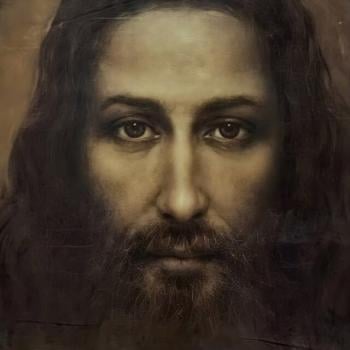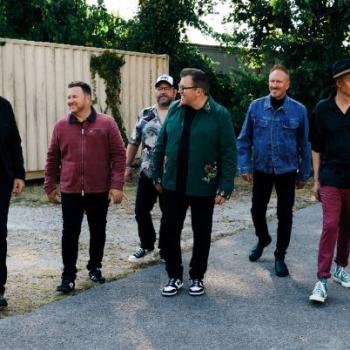Now Featured in the Patheos Book Club
Loosely Christian
Answering God's Invitation to a Creative Faith for Today
By Bruce Epperly
Bruce Epperly, pastor, author, and speaker, has tapped into the "spiritual but not religious" wave in his new book Loosely Christian. Recognizing that many have found the narrow faith formation of their childhood to be inadequate for 21st-century life and spirituality, Epperly explores a path into a broader Christianity, one that welcomes the best of other religious traditions and that initiates people into a healthier and holier life. This broader Christianity Epperly describes is transformative in that it encourages believers to hold doctrine loosely, embrace a fluid faith, and be prepared to open up heart and mind to the many paths of faith in the world as acts of God.
As part of the Patheos Book Club on Loosely Christian, Epperly answered some questions for us about what kindled his thinking and how his own experiences have shaped his spirituality.
In light of the whole "spiritual but not religious" trend, what does the title of your book mean? Why did you choose it?
The term "loosely Christian" describes a dynamic approach to being a Christian. A theology for pilgrims and seekers in the 21st century must be lively, agile, and open to the world. It cannot be attached to fixed doctrines or forms of worship, but open to new experiences that transform our understanding of God. As Diana Butler Bass notes, we must be open to embracing a visionary Christianity after Religion, a Christianity that is experientially based and cultivated by spiritual practices that emerge in relation to the dynamic interplay of theological reflection, culture, and spirituality. We live in a time of lively spiritual seeking. As a pastor, I am discovering that the day of doctrinal absoluteness or fixed doctrine is fading away and while theology and scripture are important, a growing number of Christians and other seekers are looking to experience holiness with heart and hands as well as head. They want to experience God, and know God, not just hear about God.
A lively faith is growing, willing to change, and open to new possibilities. It does not in principle exclude any quest for healing and wholeness, and believes that the way of Christ can be integrated with a variety of approaches to spiritual formation, even from beyond the Christian tradition.
Was there an event or conversation that triggered this book? Why did you feel compelled to write it?
The term "loosely Christian" emerged from an email from my "thirty something" son to a friend who had been diagnosed with cancer. My son, a cancer survivor, sent to her words of encouragement and then described himself as "loosely Christian." His self-description intrigued me. I had heard many persons describe Christians as "uptight" and "intolerant," but never as "loose." Yet, a loose Christianity, experientially grounded and in dialogue with science, spirituality from other traditions, theological reflection, and experience, is what many seekers are looking for today.
After reflection on my son's comment, I came to believe that many Christians are looking for a "loosely Christian" faith, that is, an affirmative faith that is lively, dynamic, flexible, and emerging. To be faithful to Christ, I believe, means to "hang loose" in terms of doctrinal and ritual certainty. It means to be open to the quest for truth, while not fixating on one "truth" as final and complex. The horizons of truth are receding, in the same way that God cannot be fully contained by any of our doctrines.
When we look back at the first century, it is clear that our parents in the faith were making it up as they went along. They didn't have hard and fast scriptures of their own, finalized rituals, ways of ordering their lives, or a clearly defined hierarchy or organizational structure. Yet, they experienced "signs and wonders" and spiritual dynamism that inspired them to share the good news of Christ globally. Their faith could be described as "spirituality in the making." Not final or fixed but growing and bursting forth in surprising ways, just as Jesus' ministry was always on the move, bursting through orthodoxies and fixed ways of being religious to be open to God's new creation.
Today, many people describe themselves as "spiritual but not religious." These folk are seekers and religion as they know it no longer speaks to them. They are looking for something more, a faith without fences, a spiritually-insightful path that is experiential and not doctrinal or ritualistic, and lively community that is open to new ways at looking at the world and that welcomes diversity, and sees itself as being on an open-ended journey.




